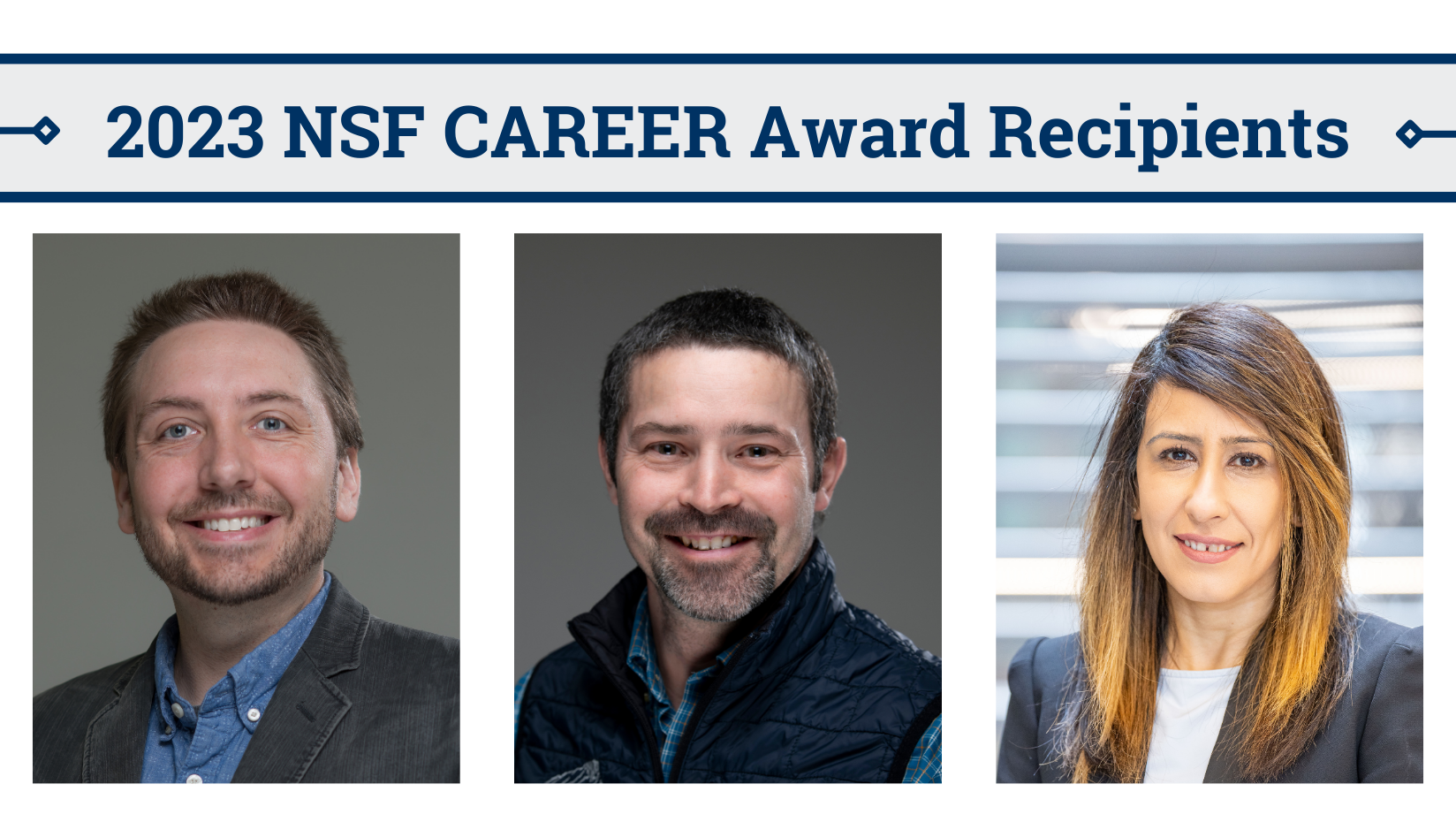
University of Maine Faculty Receive Prestigious NSF CAREER Awards, Garnering over $1.8 Million in 2023
The University of Maine (UMaine) continues its impressive streak of securing National Science Foundation (NSF) CAREER Awards. In 2023, the NSF granted three awards to faculty members Evan Wujcik, Assistant Professor of Chemical and Biomedical Engineering and the Advanced Structures and Composites Center (ASCC), Seth Campbell, Associate Professor at the School of Earth and Climate Sciences and Climate Change Institute, and Sepideh Ghanavati, Assistant Professor of Computer Science. Recognized as one of the highest honors for junior faculty in the United States, NSF CAREER Awards highlight the recipients’ potential as academic role models and leaders in advancing the mission in their respective fields.
Since 2017, UMaine’s faculty earned over $8.7 million in NSF CAREER funding, a testament to the university’s longstanding commitment to groundbreaking research. Spanning various disciplines, such as engineering, biomedical sciences, animal behavior, and education, both past and present awards reflect UMaine’s diverse and multifaceted academic landscape.
“UMaine’s success in securing these awards is a clear indication of its role as a modern 21st century research university on the forefront of innovation and educational excellence,” said Kody Varahramyan, Vice President for Research and Dean of the Graduate School.
These awards embody the overarching goal of advancing scientific knowledge while actively engaging with the community and preparing future leaders in world-renowned research. At the core of these awards is a dual commitment to advancing scientific knowledge and fostering community engagement of faculty, staff and students. These achievements bolster UMaine’s distinguished R1 research reputation and lay the foundation for innovative solutions to both local and global challenges.
The NSF CAREER Awards of 2023 spotlight the exceptional talents of Evan Wujcik, Seth Campbell, and Sepideh Ghanavati, each contributing uniquely to UMaine’s vibrant research community.

Evan Wujcik
Assistant Professor, Chemical and Biomedical Engineering and the Advanced Structures and Composites Center (ASCC)
Evan Wujcik, was awarded $523,438 for his pioneering project “Autonomous, Rapid Self-Healing and Ultra-Stretchable Electronic Polymer Research & Education for Outreach and Student Success in STEM.”
Wujcik’s project, rooted in polymer science, is redefining the potential of electronic materials with its focus on stretchable, self-healing polymers. This research has significant implications for healthcare, robotics, and entertainment, where flexibility and durability are crucial. The project also includes educational outreach, creating an avenue for underrepresented groups in STEM and enhancing engineering education through engaging digital content.

Seth Campbell
Associate Professor, School of Earth and Climate Sciences and Climate Change Institute
Seth Campbell was awarded $623,881 for his groundbreaking project, “Improving Estimates of Changing Firn Meltwater Storage and Flux in Temperate Glacier Systems.”
Campell’s work tackles the pressing issue of climate change by examining the storage and movement of meltwater in glaciers. This research is vital for understanding how climate change affects water storage in glacier systems, particularly in rapid melting regions like Alaska and Canada. The project’s educational component, including the development of an interactive video game, exemplifies the project’s commitment to make science accessible and engaging to a wider audience.

Sepideh Ghanavati
Assistant Professor of Computer Science
Sepideh Ghanavati was awarded $674,804 for her project “A Holistic Developer-Centered Approach to Enhance Privacy for Data-Driven Applications.”
Ghanavati’s project addresses the increasingly critical issue of privacy in the modern digital age. Her research focuses on embedding privacy protections in software development, a proactive approach to mitigating privacy breaches. The innovative work, involving collaborations with industry and legal experts, demonstrates a forward-thinking stance to tackling modern technological challenges.
These faculty accomplishments add to the record setting year for research at UMaine, in which the university community set a historic high, generating $189.7 million in external funding in support of research and development activities.
Contact: research@maine.edu
Written by Karalyn Kutzer
